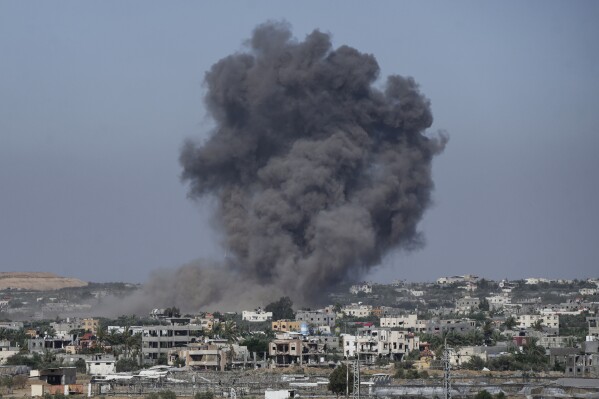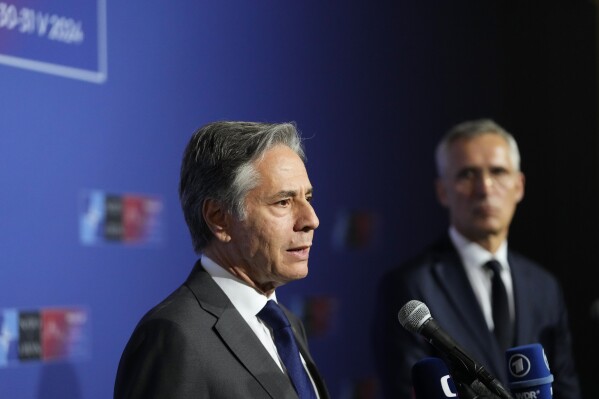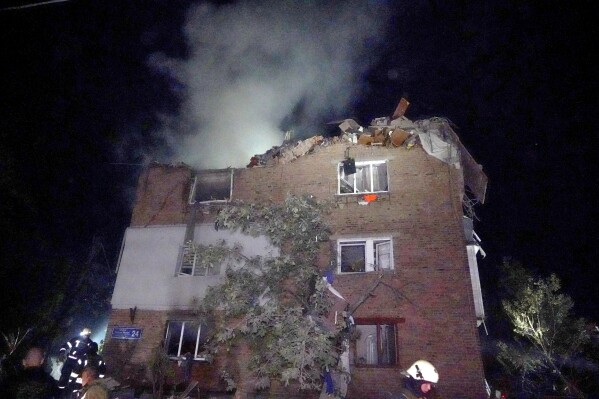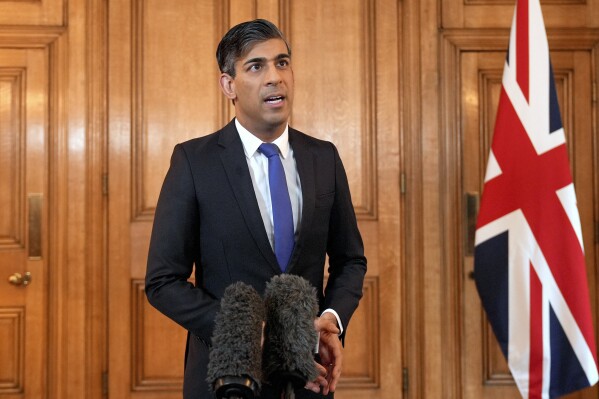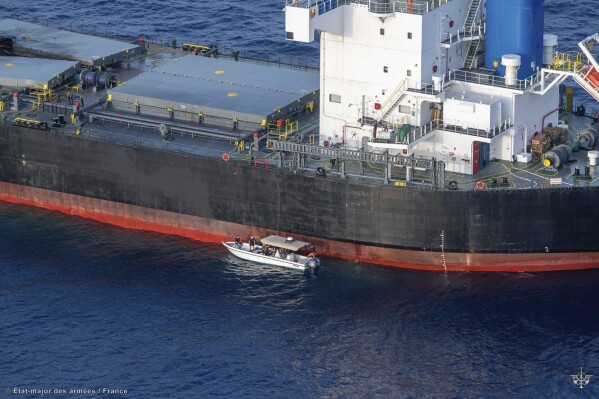Putin Ally Issues Nuclear Weapons Warning to NATO
Former Russian President Dmitry Medvedev has warned Moscow's NATO adversaries against the "fatal mistake" of dismissing Kremlin nuclear capabilities, as the Russian leadership seeks to derail building momentum for a more-concrete Western presence inside Ukraine.
Medvedev—a longtime ally of President Vladimir Putin, who served as both president and prime minister and was once considered a possible successor to the Russian leader—declared in a lengthy Telegram post on Friday that Moscow's threats to use tactical nuclear weapons in Ukraine were not empty.
"Life is much worse than their frivolous reasoning," Medvedev—now a deputy chairman of Russia's Security Council and considered a window into the thinking of the country's most-hawkish factions—wrote of those downplaying the threat of Russian nuclear weapons.
"A few years ago, they insisted that Russia would not enter into an open military conflict with the [mid-1900s Ukrainian far-right] Bandera regime, so as not to quarrel with the West," Medvedev added, using a pejorative historical term to refer to President Volodymyr Zelensky's government in Kyiv.
Kremlin nuclear saber-rattling has been a constant since Moscow launched its full-scale invasion of Ukraine in February 2022. Putin and his top officials have repeatedly framed Western aid to Kyiv as risking a direct—and ultimately nuclear—showdown with Moscow.
Russia is ramping up its nuclear brinkmanship as NATO nations debate deploying troops to Ukraine in noncombat roles, and gradually lift restrictions on Ukrainian use of Western-made weapons within Russian borders.
Western intelligence agencies have repeatedly said they have seen no indication that Moscow is preparing to use its atomic arsenal. And Ukraine's recent drone attacks on Russia's long-range ballistic missile warning sites have not yet prompted significant escalation by the Kremlin.
Earlier this month, Russia's Southern Military District troops conducted nuclear drills close to Ukraine. And this week, Putin made a thinly veiled threat against NATO nations "with small, densely populated territories." He added: "This is a factor they should keep in mind before talking about striking Russia," in reference to the debate over cross-border Western weapon use.
Medvedev echoed the sentiment, though in a characteristically more direct tone. "The use of tactical nuclear weapons can also be miscalculated," Medvedev added. "This would be a fatal mistake. After all, as the president of Russia rightly noted, European countries have a very high population density."
For those beyond the range of Moscow's tactical nuclear warheads—which are lower-yield weapons primarily designed for battlefield use, rather than against long-range targets—Medvedev said there is the potential for strategic missile strikes.
"This, alas, is not intimidation or a nuclear bluff," Medvedev added. "The current military conflict with the West is developing according to the worst possible scenario. There is a constant escalation in the power of applicable NATO weapons. Therefore, today no one can rule out the transition of the conflict to its final stage."
Newsweek has contacted the State Department by email to request comment.
The growing number of NATO nations approving the use of their weapons inside Russian borders has rattled the Kremlin. In recent months, Moscow has launched a fresh offensive across the shared Russian-Ukrainian border into Kharkiv region, its staging points and supply lines on Russian territory relatively safe from Kyiv's weapons.
"We had information before the latest Russian offensive near Kharkiv, about them assembling their troops, about their equipment, but we couldn't do anything," Yehor Cherniev—a member of the Ukrainian Parliament and the deputy head of its national security, defense and intelligence committee—told Newsweek earlier this week.
"We couldn't strike, and that's why we couldn't prevent this attack. That's why we lost some villages, some territories, and we lost our soldiers and civilians. This is ridiculous," Cherniev added.
NATO nations including the U.K., Finland, Poland, and France have now said they approve the use of their weapons to attack offensive targets inside Russia. Germany and the U.S.—traditionally among the most-cautious NATO states regarding Ukrainian conduct—have been edging toward their own approvals.
Kremlin spokesperson Dmitry Peskov on Thursday hit out at what he called "a policy of provoking a new level of tensions." NATO nations, he added, "intend to continue the war" with Russia, "a war in the literal and figurative sense."
"This will, of course, will inevitably entail its consequences. It will ultimately be very harmful to the interests of those countries which have opted for the path of escalation," Peskov added.
"The North Atlantic Alliance's member-countries, the United States in particular, other European capitals in recent days and weeks were coming close to a new round of escalating tensions. They are doing this on purpose."
Disclaimer: The copyright of this article belongs to the original author. Reposting this article is solely for the purpose of information dissemination and does not constitute any investment advice. If there is any infringement, please contact us immediately. We will make corrections or deletions as necessary. Thank you.
